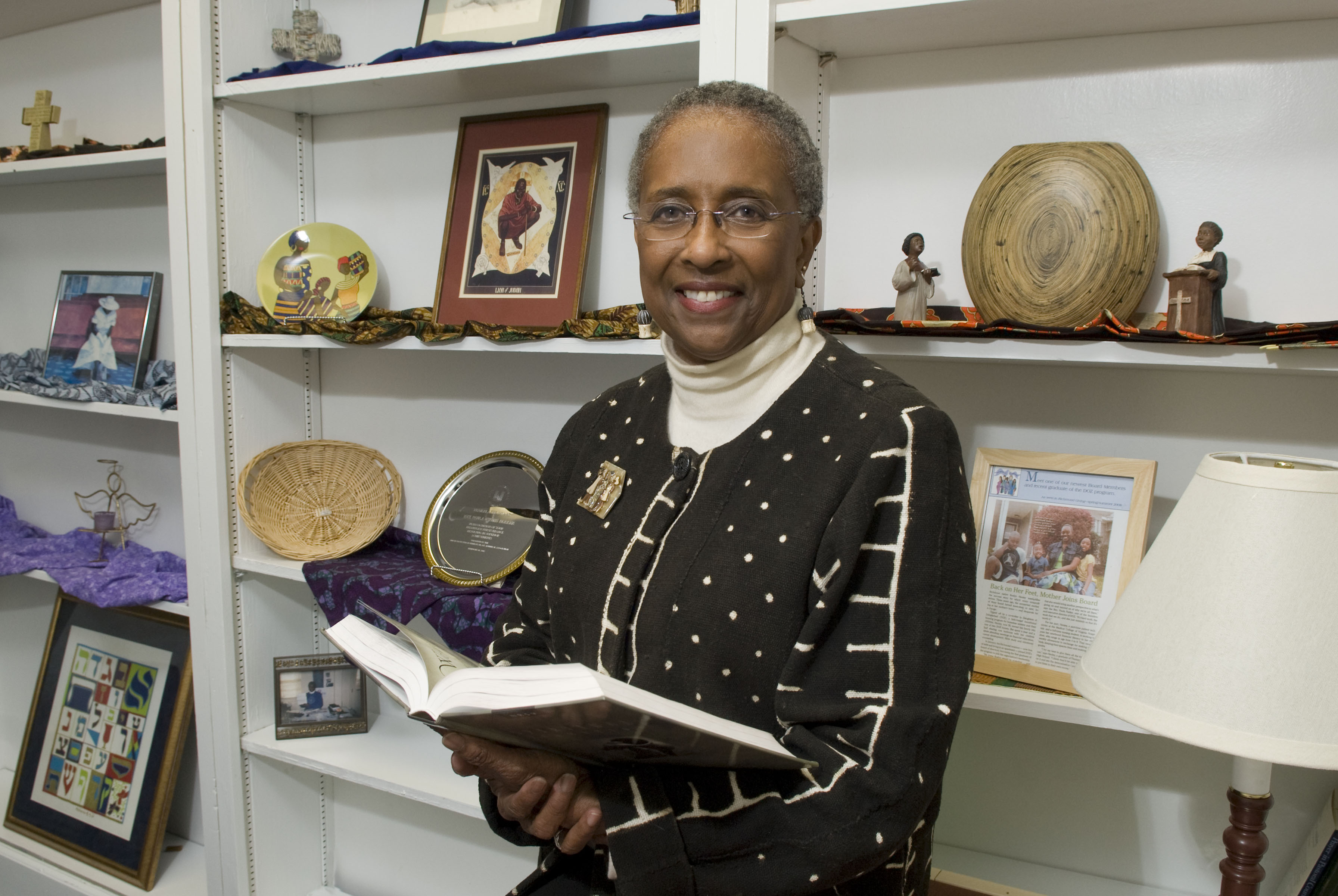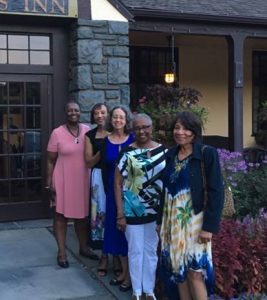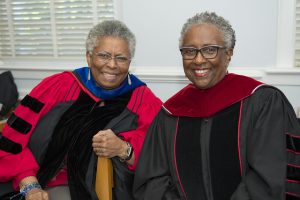Dr. Paula Owens Parker: Computer programmer turned womanist theologian

Faculty Spotlight
BY PATRICE OWENS PARKER
Womanism encourages black women to push the envelope, be questioning, love each other and their communities, express genuine care for others, and love the arts. It also teaches self-care and an understanding of the unique struggles of black women.
Rev. Dr. Paula Owens Parker (M.Div.’94), a womanist, embodies these traits. She is a Union Presbyterian Seminary adjunct professor, alumna, and interim director of the school’s Katie Geneva Cannon Center for Womanist Leadership.
Parker began studying sociology and psychology as an undergrad student at Fisk University in Nashville, Tennessee. By the time she graduated, the excitement of the growing information age drew her to a career as a computer programmer. Parker was curious about this brand new industry and decided to pursue the opportunity to be at the forefront of a burgeoning new field. IBM hired her at their headquarters in White Plains, New York. When she relocated to Richmond, she was employed as a programmer/analyst in the data processing department at Philip Morris.

In 2018, Dr. Paula Parker and some of her former IBM computer programming colleagues celebrated 50 years since they first met in White Plains, NY
As part of her spiritual journey, Parker received Stephen Ministry training and participated in a healing prayer ministry offered at an Episcopal church. Parker then decided to become a pastoral counselor.
She began her studies at Samuel Dewitt Proctor School of Theology at Virginia Union University (STVU) then transferred to Union Presbyterian Seminary. After graduation, she was ordained into a ministry position at Richmond Hill, an ecumenical retreat center and residential community in Richmond’s Church Hill neighborhood. She developed the Christian Social Transformation program designed to assist those in discerning their call in the community, both inside and outside the traditional church setting. While there, she co-created the SOZO (from the Greek word for “save” or “deliver”) School of Healing Prayer at Richmond Hill offered from 1999-2006.
After four years at Richmond Hill, she created her own non-profit, The Daughters of Zelophehad, Inc. (DOZ), an ecumenical Christian organization that provided transitional housing for mothers and children affected by homelessness. In addition to housing, the organization provided counseling. The counseling included spiritual direction and healing prayer. The program also provided substance abuse counseling and case management services that provided guidance and resources as the mothers prepared to secure affordable housing. She was executive director until 2011.
As the end of her service with DOZ approached, Parker returned to school to enter the Doctor of Ministry program at San Francisco Theological Seminary. Her focus was on healing generational trauma in families. “I was specifically interested in African-American families and how the trauma of slavery is passed down through the generations,” Parker said.
When Parker was in need of a dissertation advisor, she reached out to Dr. Katie Geneva Cannon, professor of Christian ethics at Union Presbyterian Seminary. Working with Cannon was Parker’s reconnection to Union and womanist theology. Cannon was the first African-American woman to be ordained in the Presbyterian Church (U.S.A.). Cannon was also the first person to combine womanism and theology to create a new branch of theology that views the Bible and Christianity through the lens of the experiences of African-American women.

Dr. Paula Parker with Dr. Katie Cannon at Union Presbyterian Seminary’s 2017 commencement.
Cannon was the founder of the Center for Womanist Leadership (CWL). The mission of CWL is to nurture the soul work of black women for the cultivation of new pathways to whole communities. While supporting black women leaders and helping to cultivate new ones, CWL recognizes the importance of capturing the womanist wisdom that drives, as well as grows out of the work of black women. Consequently, CWL functions as an institutionalizing resource for womanist thought, theory, and praxis.
In April 2018, CWL held its inaugural conference of womanist scholars who provided academic, spiritual, and personal experiences for women (and some men) from all walks of life. The three-day conference, held in Richmond, featured black women from colleges, communities, seminaries, divinity schools, and universities from all over the country who delivered messages not only through lectures but also through music, ritual, poetry, and dance. Alice Walker, author of “The Color Purple,” and creator of the term “womanism” in her book. “In Search of My Mother’s Garden,” was the keynote speaker.
As plans for further community engagement and partnerships were developing, in August 2018, Cannon died after a brief illness. Parker is now acting as the interim director of the Katie Geneva Cannon Center for Womanist Leadership, renamed in honor of its founder. “Dr. Cannon was the director and the guiding star for us,” Parker said.
For the future of the center, Parker envisions on-campus lectures by womanist scholars; summer institutes for black women seminarians; internships for local, national and international students; and communication beyond the classroom through, blogs, podcasts, and online seminars. “The center will provide the support and resources to equip, empower, and set black women free to do the work their souls must have,” Parker said.
Emma North contributed to this article.

